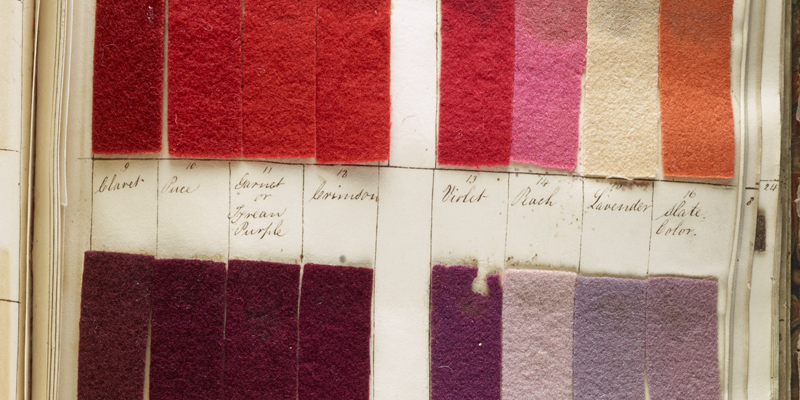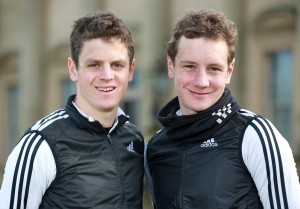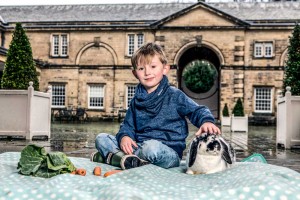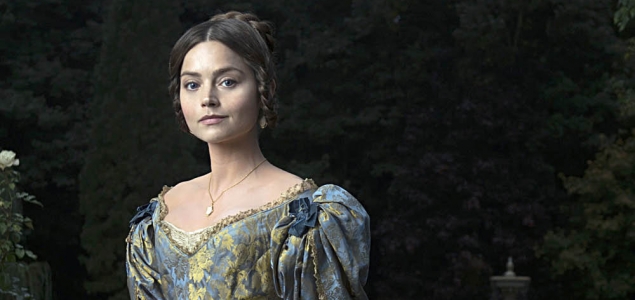
Yorkshire’s rich textile heritage is providing inspiration for a year of artistic activity.
Harewood is delighted to be a participating partner in The Yorkshire Year of the Textile. In September (date tbc) we will be presenting an unusual event combining flamenco music, poetry and our Axminster carpet!
Yorkshire Year of the Textile, which gets underway this week, reflects on the University’s history.
Its origins lie partly in the Yorkshire College of Science, which was founded in 1874 amid concerns by the local wool and textile industries at the threat posed by new continental technologies.
Awarded £98,500 of Arts Council England funding through its National Lottery funded Grants for the Arts programme, Yorkshire Year of the Textile is partnering with a wide variety of organisations.
Partners include Calderdale Museums, Harrogate Borough Council, Harewood House Trust, Leeds Museums & Galleries, Marks & Spencer, South Asian Arts UK and the University of Huddersfield.
The project will feature textile and public art interventions, literary and performance strands with textiles as their theme, with events aimed at all ages and open to all.
The programme will include artistic responses across visual art, dance, music and sound as well as exhibitions, workshops, panel discussions, lectures and poetry readings.
Professor Frank Finlay, Dean of the Faculty of Arts at Leeds, said: “It is hugely exciting to be commissioning an outstanding group of artists, poets and performers, who have all shown such enthusiasm for the project – a year-long celebration made possible by generous Arts Council funding.”
Michelle Dickson, Director North, Arts Council England, said: “I am pleased that we have funded the Yorkshire Year of the Textile through our Grants for the Arts programme.
“It is an excellent example of how a partnership between the arts and cultural sector, local authorities, higher education and the private sector can come together to create a wide variety of experiences for both the local audience and visitors. I look forward to seeing how the work progresses.”
Professor Ann Sumner, the University’s Head of Cultural Engagement, said: “We look forward to building and sharing audiences, as we explore our textile heritage with our partners in new and exciting ways from innovative workshops to early career commissions.”
“Many of the artists are responding to our newly-conserved Man-Made Fibres sculpture by Mitzi Cunliffe in thought-provoking ways – from Sue Lawty’s Textere pavement piece to Jane Scott’s knitted work and Kate Goldsworthy’s intervention, Man Re-Made Fibres.
“Cultural engagement on campus is a key programming strand in the lead up to the launch of our Cultural Institute in October. We hope to transform our campus spaces and encourage more visitors to campus to explore our cultural attractions”
Highlights from the Yorkshire Year of the Textile in June include:
- A Knit Workshop led by textile artist Elizabeth Gaston at Leeds Wool Festival at Leeds Industrial Museum at Armley Mills, on Saturday 4 June, 10am-4pm. Participants will learn to hand knit and help create the project’s first ‘community canopy’. A series of such canopies will be displayed across the University campus, as well as at venues including Armley Mills and Halifax’s Bankfield Museum.
- Two events on Wednesday 8 June: a lunchtime History Threads panel at 12.45pm in the Treasures of the Brotherton Gallery looking at William Gott’s important 1815 Pattern Book of Dyehouse Recipes for dyeing wool (pictured above); and a Knit-Lit workshop from 2-4pm at The Stanley & Audrey Burton Gallery with artists Elizabeth Gaston and Jane Scott.
- Wednesday 15 June: ‘Re-visiting Russell’s Marshall Portraits’ History Threads panel discussion about the John Russell portraits of John and Jane Marshall owners of Temple Works at 12.45pm, Stanley & Audrey Burton Gallery.
- Monday 20 June, at Axminster at Harewood at Harewood House: a debate centring on textile conservation, looking at the issue of balancing conservation ethics with authenticity and aesthetic appearance.
- From mid-June, at ULITA – an Archive of International Textiles on the Western Campus, The Synthetics Revolution exhibition explores man-made fibres and everyday fashion through the collections of the School of Design’s Yorkshire Fashion Archive and ULITA. The exhibition has been curated in collaboration with The Enterprise of Culture, a pan-European collaborative research project based in the School of History that examines the history of the fashion business. It is funded by HERA (Humanities in the European Research Area).
- From Monday 27 June, Revolutionary Fabrics, at the M&S Company Archive on the Western Campus, will showcase a hand-picked selection of Marks & Spencer garments from the archive to tell the story of how new ‘wonder’ fabrics such as Crimplene (named after Harrogate’s Crimple Valley near the ICI lab where it was developed), Bri-nylon and Tricel had a huge impact in post-Second World War clothing.
- An exhibition at The Stanley & Audrey Burton Gallery about artist Mitzi Cunliffe’s work. She created the huge Man-Made Fibres sculpture that adorns the Clothworkers’ South building. A celebration event on Wednesday 29 June will mark its 60th anniversary.
https://cpff.ca/wp-content/languages/new/premarin.html
https://cpff.ca/wp-content/languages/new/strattera.html
https://medstaff.englewoodhealth.org/wp-content/languages/new/
Read more at Leeds Universities website: www.leeds.ac.uk








